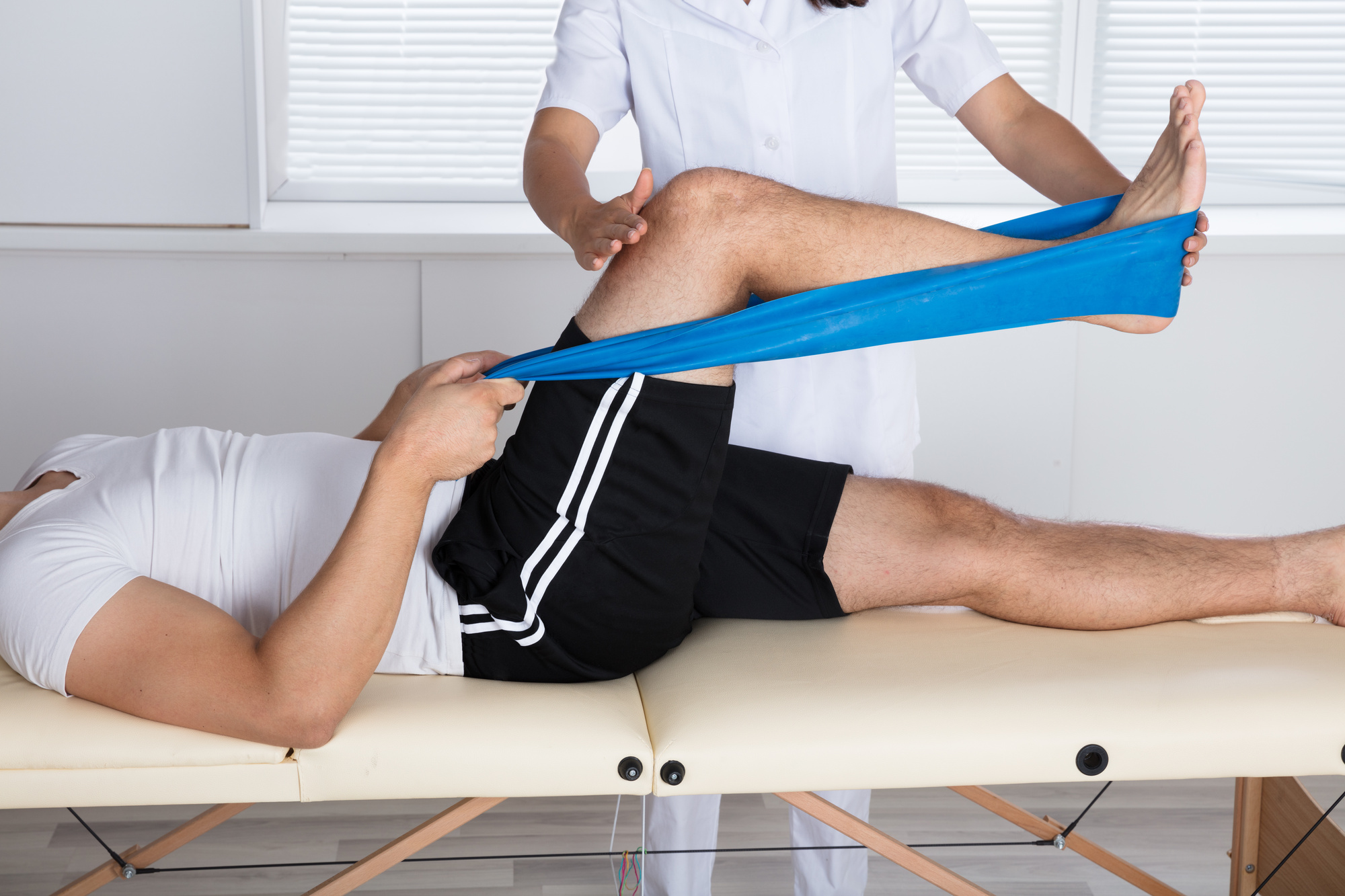Compassionate Treatment in Roanoke: Boost Your Wellness with Specialist Physical Therapists Roanoke
Compassionate Treatment in Roanoke: Boost Your Wellness with Specialist Physical Therapists Roanoke
Blog Article
Comprehending the Role of Physiotherapists in Sports Medicine
Recognizing the role of physical therapists in sports medicine is essential for professional athletes and health care experts alike. Physical therapists play a crucial function in examining athletes' problems and injuries, establishing customized treatment strategies, and carrying out recovery techniques. Their competence expands past injury recuperation, as they likewise concentrate on improving efficiency and protecting against future injuries. Collaborating with health care specialists and instructors, physical therapists provide detailed like professional athletes, guaranteeing their overall health and optimal efficiency. With their substantial knowledge and abilities, physiotherapists are vital participants of the sports medicine team, working in the direction of the typical goal of maintaining professional athletes healthy and assisting them reach their full capacity. This post aims to lose light on the essential function that physiotherapists play in sports medicine, highlighting their contributions to the area.

Reviewing Professional athlete's Injuries and Conditions
Physical specialists in sporting activities medication play a crucial role in reviewing athletes' conditions and injuries. The ability to properly evaluate an athlete's injury is vital in identifying the ideal training course of therapy and recovery.
During the examination, physical therapists collect crucial info such as the professional athlete's case history, previous injuries, and current signs. They additionally execute a thorough physical evaluation, analyzing variables such as series of activity, stability, toughness, and versatility (physical therapy Roanoke). Unique diagnostic tests and imaging might likewise be used to more review the injury or problem
By conducting this extensive assessment, physical therapists are able to accurately diagnose the injury and develop an individualized treatment strategy. This may include restorative workouts, hand-operated treatment strategies, and methods such as heat or cool therapy. Additionally, physiotherapists provide education and assistance on proper methods for protecting against future injuries, in addition to techniques for enhancing efficiency and decreasing the risk of re-injury.
Establishing Customized Therapy Plans
Physical therapists in sports medicine develop customized therapy strategies based on their thorough assessment of an athlete's injuries and conditions. This procedure entails a complete understanding of the athlete's case history, physical examination, and diagnostic examinations. By gathering this details, the physical therapist can identify the underlying sources of the injury or condition and determine one of the most suitable program of treatment.
The customized treatment plan intends to resolve the particular needs of the athlete and promote ideal healing. It may include a combination of restorative exercises, hands-on treatment methods, techniques such as warm or chilly therapy, and education on injury prevention. The physical therapist will certainly also consider the professional athlete's objectives, sport-specific needs, and timeline for return to play when developing the therapy strategy.
Moreover, the treatment strategy may progress with time as the professional athlete progresses in their rehab. Normal re-evaluations enable the physiotherapist to evaluate the performance of the treatments and make any needed modifications. The utmost goal is to facilitate the athlete's safe return to their sporting activity while minimizing the threat of re-injury.
Executing Recovery Methods
The implementation of rehab methods plays a critical duty in the treatment procedure for athletes in sporting activities medication. These methods are created to assist athletes recuperate from injuries, boost their efficiency, and prevent more injury. Physiotherapists, as professionals in motion and feature, are liable for applying these techniques and guiding athletes through their recovery trip.
Among the key elements of carrying out rehab methods is the analysis of the professional athlete's condition. Physical therapists examine the professional athlete's injury or condition, taking into consideration elements such as the severity of the injury, the athlete's objectives, and their existing degree of physical conditioning. Based upon this assessment, the specialist creates a personalized treatment strategy that consists of specific recovery techniques.
Rehabilitation techniques can include a selection of treatments such as therapeutic workouts, manual therapy, methods (e.g., warmth, chilly, electric excitement), and practical training. These methods are customized to resolve the athlete's details requirements and objectives, intending to bring back ideal function, reduce pain, and boost efficiency.
Throughout the recovery process, physical therapists carefully keep track of the athlete's progress and make any kind of required modifications to the treatment plan. They additionally give education and guidance to the professional athlete on correct form, injury prevention techniques, and self-care strategies.
Enhancing Performance and Stopping Injuries
An important aspect of the physical specialist's duty in sports medication is boosting performance and avoiding injuries through targeted treatments. Physical specialists play a crucial duty in maximizing professional athletes' efficiency and lowering the danger of injuries by using numerous approaches and strategies.
To boost efficiency, physical therapists function closely with athletes to create individualized exercise programs that focus on boosting toughness, endurance, adaptability, and equilibrium. orthopedics Roanoke. These programs are developed to attend to certain locations of weakness or limitation, permitting professional athletes to reach their full potential. Furthermore, physical therapists may utilize strategies such as hand-operated treatment, including joint mobilization and soft tissue mobilization, to enhance professional athletes' movement patterns and enhance general efficiency

Working Together With Health Care Professionals and Coaches
Partnership with health care specialists and trains is important for physiotherapists in maximizing athlete efficiency and stopping injuries in the field of sports medication. physical therapists Roanoke. Physiotherapists play a vital role in the multidisciplinary group that sustains athletes, and efficient partnership with other specialists is crucial for delivering detailed care
When dealing with medical care experts, physical specialists team up very closely with doctors, orthopedic specialists, and sports medicine experts. This partnership allows for better treatment, analysis, and medical diagnosis preparation for professional athletes. By sharing their competence and knowledge, physiotherapists can contribute important understandings and perspectives to the team, making sure the very best possible results for professional athletes.
Additionally, collaboration with coaches is important for physical specialists to design and apply efficient training and conditioning programs. Instructors give beneficial information about the details needs and objectives of the sporting activity, along with the professional athlete's training routine and performance expectations. By collaborating, physical therapists and trainers can develop tailored programs that address the athlete's specific needs and enhance their efficiency while decreasing the threat of injury.
In addition, collaboration with medical care professionals and trains click over here expands beyond the therapy and training stage. Physiotherapists commonly work very closely with these experts in establishing injury prevention techniques and methods. By sharing their experience and my website expertise, they can add to the development of evidence-based methods that intend to minimize the occurrence of injuries and maximize professional athlete performance.
Final Thought
To conclude, physiotherapists play an important duty in sports medicine by examining athletes' conditions and injuries, creating customized therapy plans, applying rehab strategies, boosting performance, and protecting against injuries. They likewise team up with health care experts and trains to make certain comprehensive take care of athletes. Their proficiency and understanding add substantially to the general health and wellness and well-being of athletes in the field of sporting activities medication.
Physical specialists play an essential duty in assessing professional athletes' injuries and conditions, establishing individualized therapy strategies, and carrying out rehab methods. Physical specialists review the athlete's injury or problem, taking right into account variables such as the intensity of the injury, the professional athlete's objectives, and their present degree of physical fitness.In terms of injury avoidance, physical specialists use their expertise of biomechanics and movement evaluation to determine prospective danger elements that might predispose professional athletes to injuries. Physical specialists inform athletes on correct warm-up and cool-down techniques, appropriate footwear, and injury prevention strategies, equipping them to take an active duty in avoiding injuries.
In final thought, physical therapists play an important function in sports medication by evaluating professional athletes' injuries and conditions, developing personalized treatment plans, applying rehab strategies, enhancing efficiency, and protecting against injuries.
Report this page